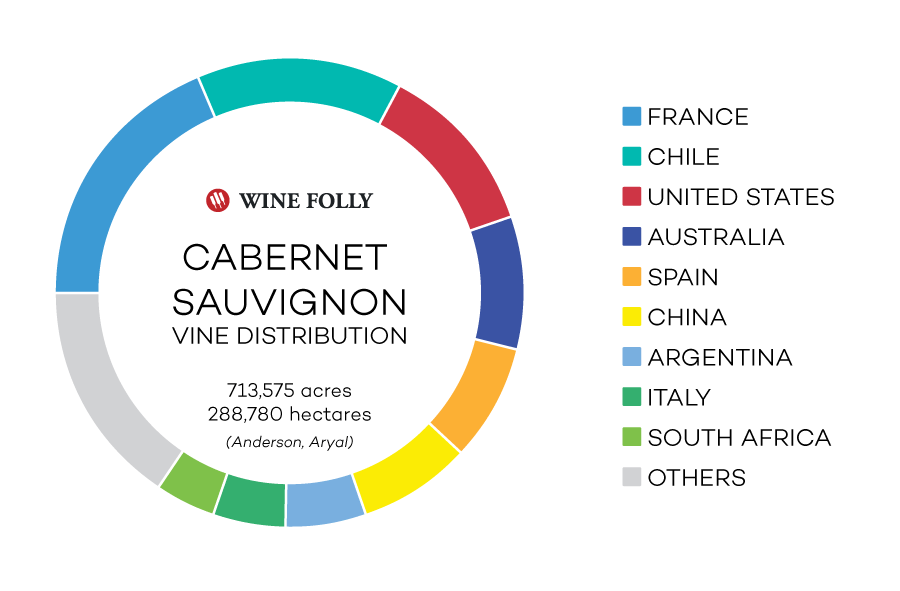Primary Flavors
- Black Cherry
- Black Currant
- Cedar
- Baking Spices
- Graphite
Taste Profile
Handling
SERVE
60–68°F / 15-20°C
GLASS TYPE
Oversized
DECANT
1 Hour
CELLAR
10+ Years
Cabernet Sauvignon Food Pairings
The rich flavor and high tannin content in Cabernet Sauvignon make it a perfect partner for rich grilled meats, peppery sauces, and dishes with intense flavor.
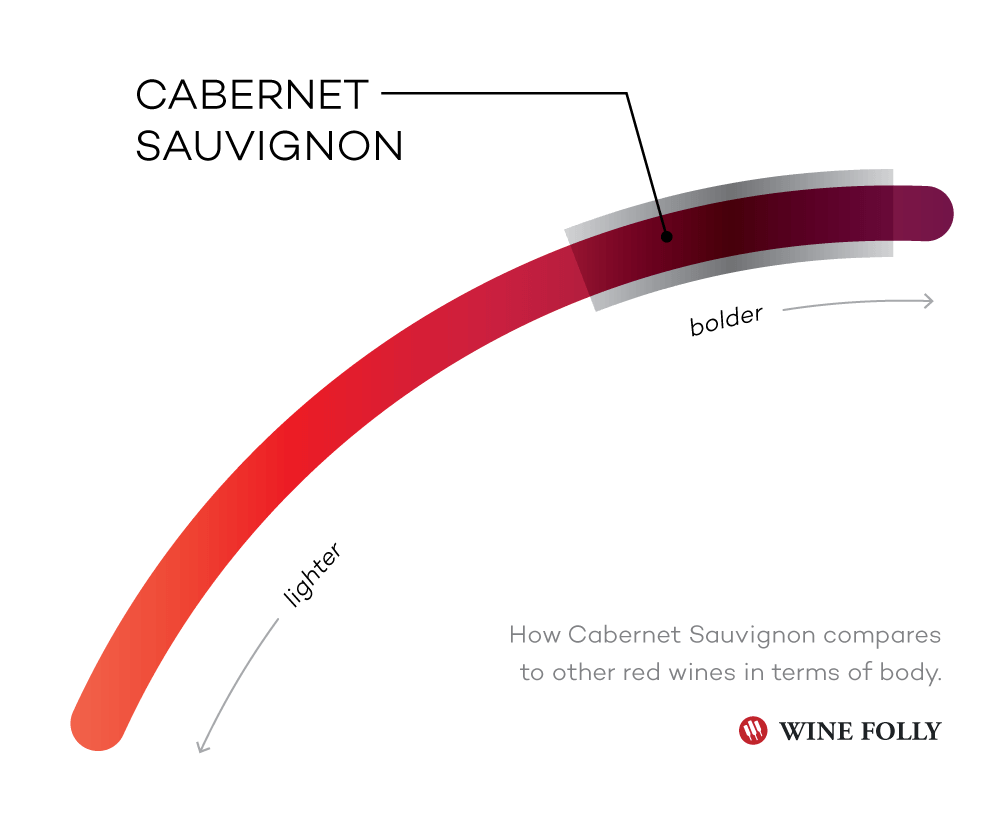
Cabernet Sauvignon Tasting Notes
Wine drinkers today can find many Cabernet wine options in the market. Some are sumptuous and fruity, while others are savory and smoky. It all depends on where the Cabernet Sauvignon grows and how it’s made into wine.
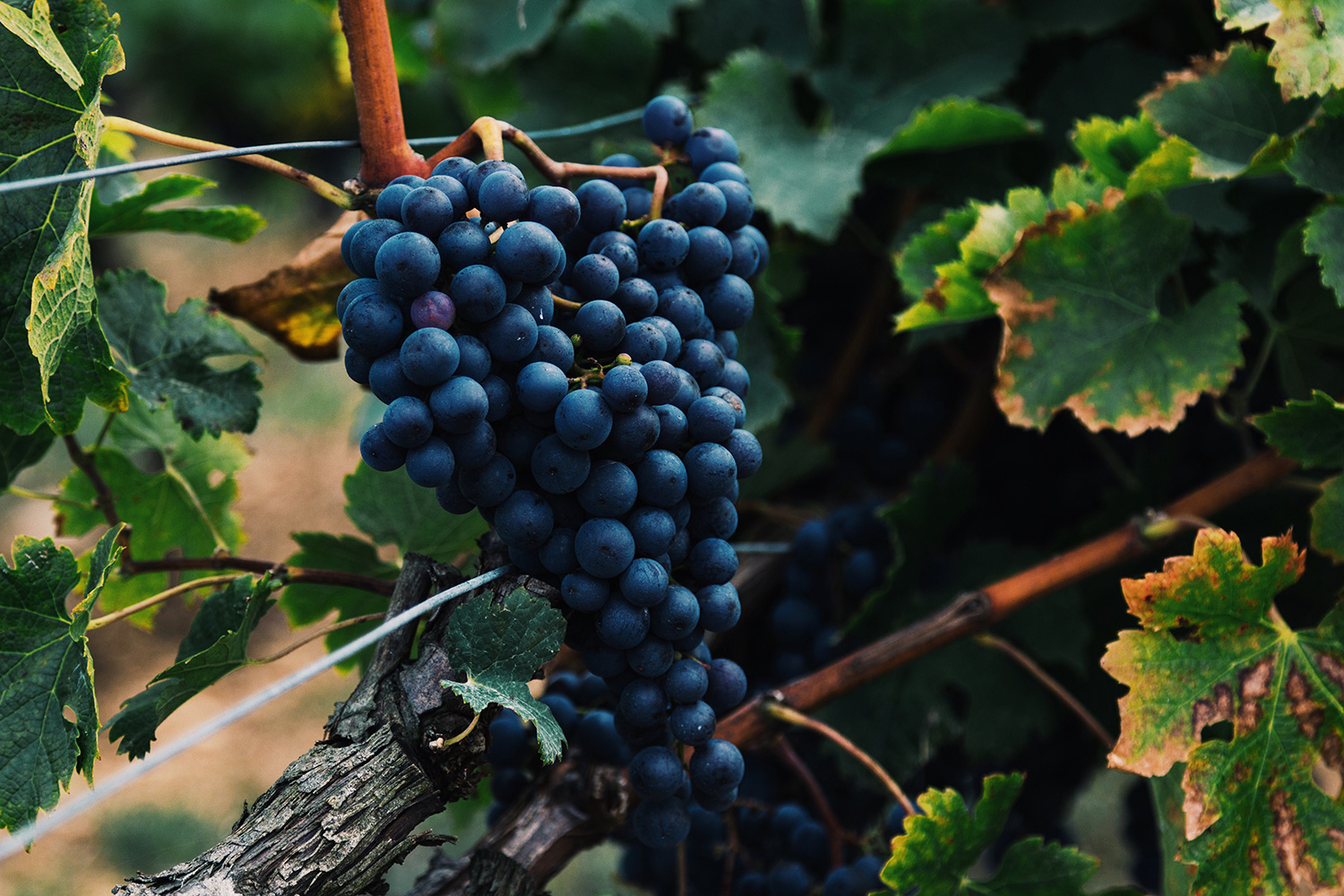
Here are some of the top Cabernet regions and how their wines taste:
Bordeaux, France
TASTING NOTES: Black Currant, Anise, Tobacco Leaf, Plum Sauce, Pencil Lead
Bordeaux is very much the “OG” Cabernet Sauvignon growing region. It’s here where you’ll find some of the most savory and age-worthy expressions of the grape. Still, you won’t find a lot of single-varietal Cabs here – most are blended into the region’s eponymous “Bordeaux Blend.”
Cabernet Sauvignon performs best on the gravelly soils in Bordeaux. So, if you’re looking for a Cabernet Sauvignon-dominant wine, look to the sub-regions of the Médoc, Graves, and gravelly areas within Côtes de Bourg and Blaye.
Read more about Bordeaux wine.
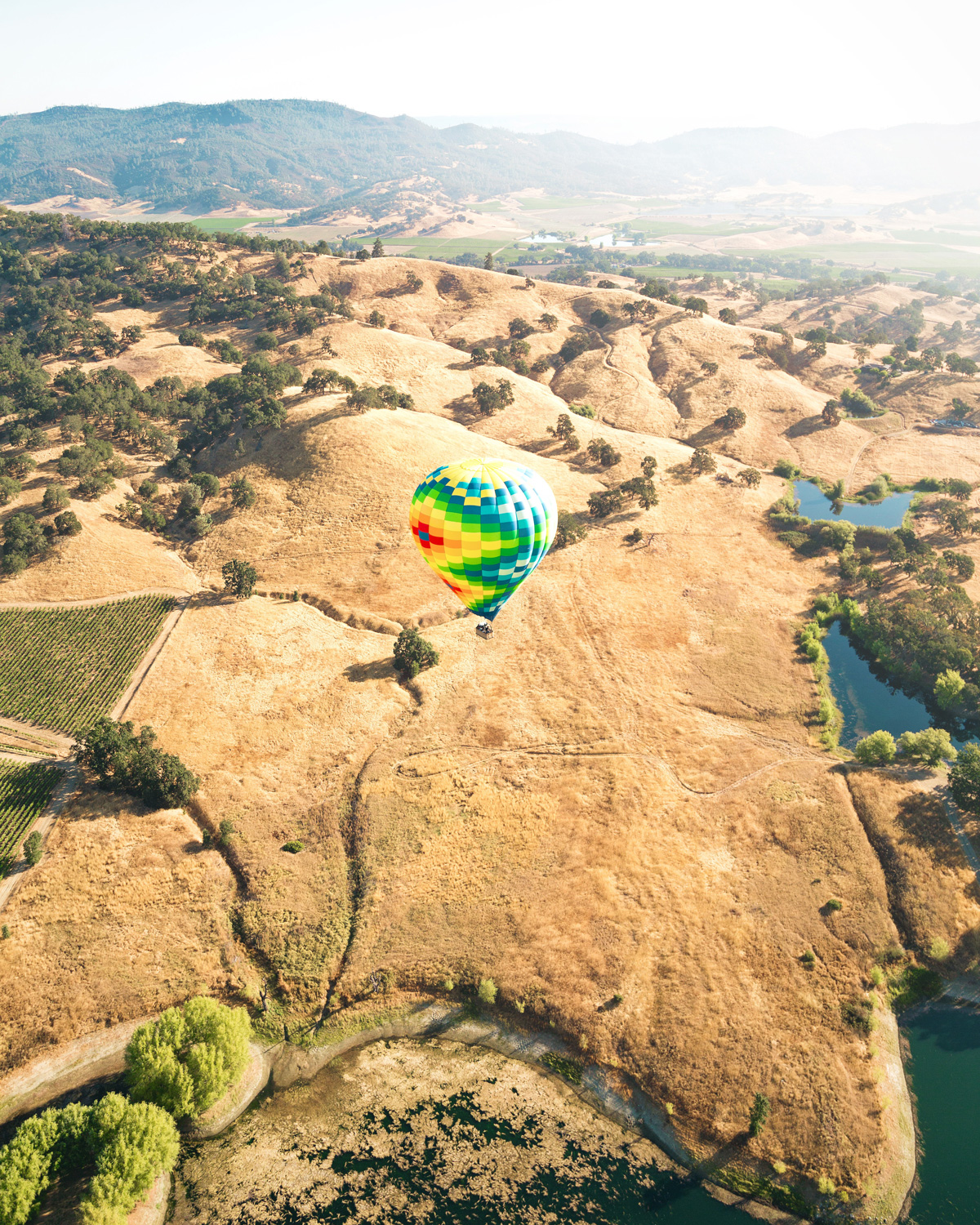
North Coast, California
TASTING NOTES: Black Currant, Blackberry, Pencil Lead, Tobacco, Mint
The North Coast AVA (American Viticulture Area) includes Napa Valley, Sonoma, and some lesser-known regions that produce outstanding Cabernet wines.
The area became known for Cabernet when, in 1976, an English wine merchant held a blind tasting featuring French and Californian wines with France’s top wine critics. Later dubbed “The Judgment of Paris,” the Californian wines won, proving that great wine could be made outside of France!
(BTW, a great documentary on the Judgment of Paris and blind tasting is Somm III)
Read more about Napa Cabernet.

South Australia
TASTING NOTES: Black Plum, White Pepper, Currant Candy, Chocolate, Bay Leaf
The Coonawarra region in South Australia is typified by its warm climate and red clay soils (called “terra rossa”) with high iron-oxide content. This region and Langhorne Creek are famous for their exceptional (and unique) expressions.
Wines have ample depth and powerful tannins with distinct white pepper or bay leaf notes. It’s common to find exceptional quality Australian Cabernet wines bottled under a screw cap. Don’t be deterred by the bottle top!
Read more about South Australian wine.
Chile
TASTING NOTES: Blackberry, Black Cherry, Fig Paste, Baking Spices, Green Peppercorn
Chile offers some of the best values for exceptional-quality Cabernet. While plenty of wine is exported from the vast Central Valley, the best versions come from the Aconcagua, Maipo, Cachapoal, and Colchagua Valleys.
The location of Maipo Valley between the cooling Pacific Ocean breezes and hot, inland Andes Mountains produces one of the most ideal Mediterranean climates for Cabernet grapes. You’ll find top-quality Maipo wines from the Alto Maipo subregion.
Read more about Chilean Cabernet.
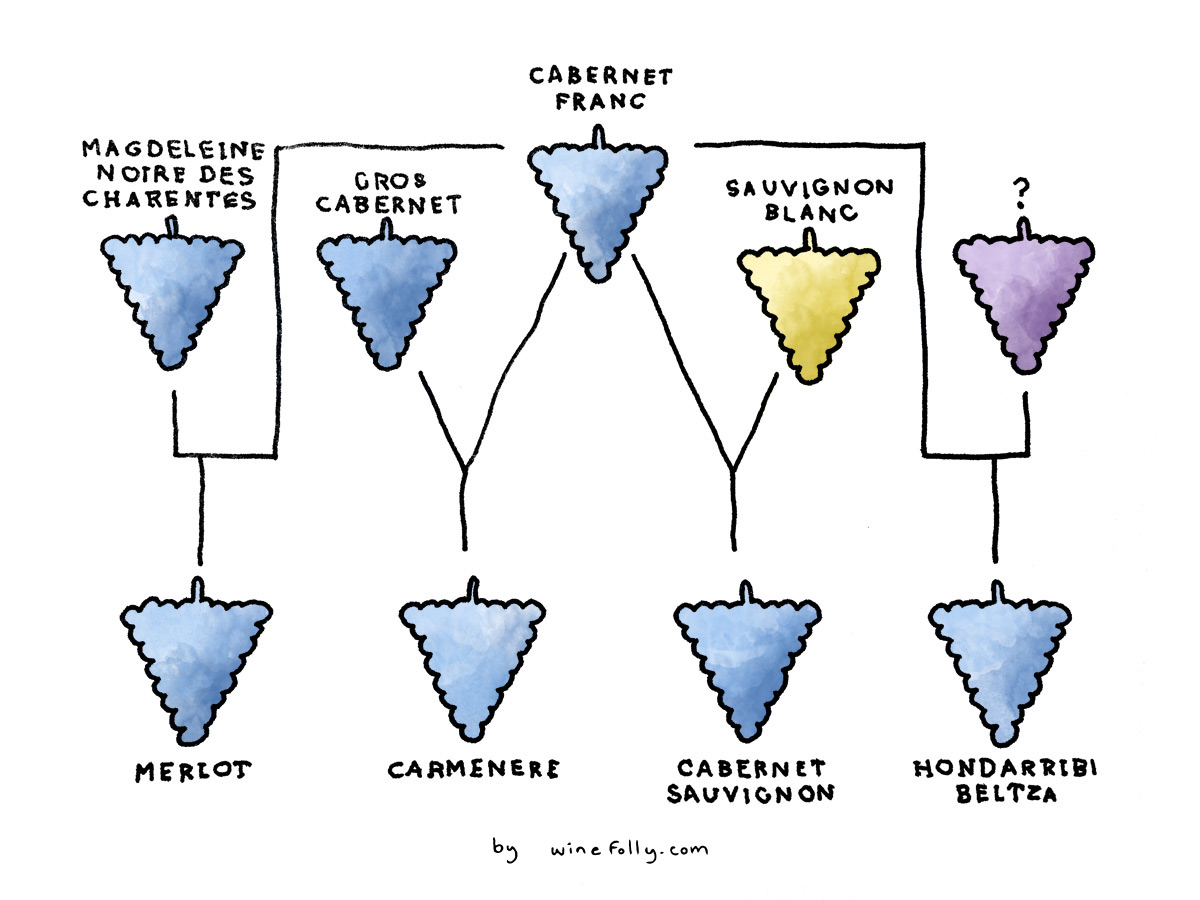
Unlikely Origins
Cabernet Sauvignon means “wild Cabernet” and the grape originated in the Aquitaine Department of France (includes Bordeaux).
In 1997, researchers at UC Davis (Carole Meredith and John Bowers) shocked the world. They discovered Cab Sauv was a child of Sauvignon Blanc (and Cabernet Franc).
It’s true that Sauvignon Blanc leaves look very similar to Cabernet Sauvignon vines. That said, no one ever thought that a white grape could parent such a world-class red. Who woulda thunk!
“Green” Flavors of Cabernet Sauvignon
Cabernet Sauvignon is related to a slew of other grapes in Bordeaux that people generally call “the Bordeaux varieties.” These grapes include Cabernet Franc, Merlot, Malbec, Carménère, and Sauvignon Blanc.
One of the intriguing similarities shared amongst the Bordeaux varieties is the presence of an aromatic compound group also found in green bell pepper (called methoxypyrazine).
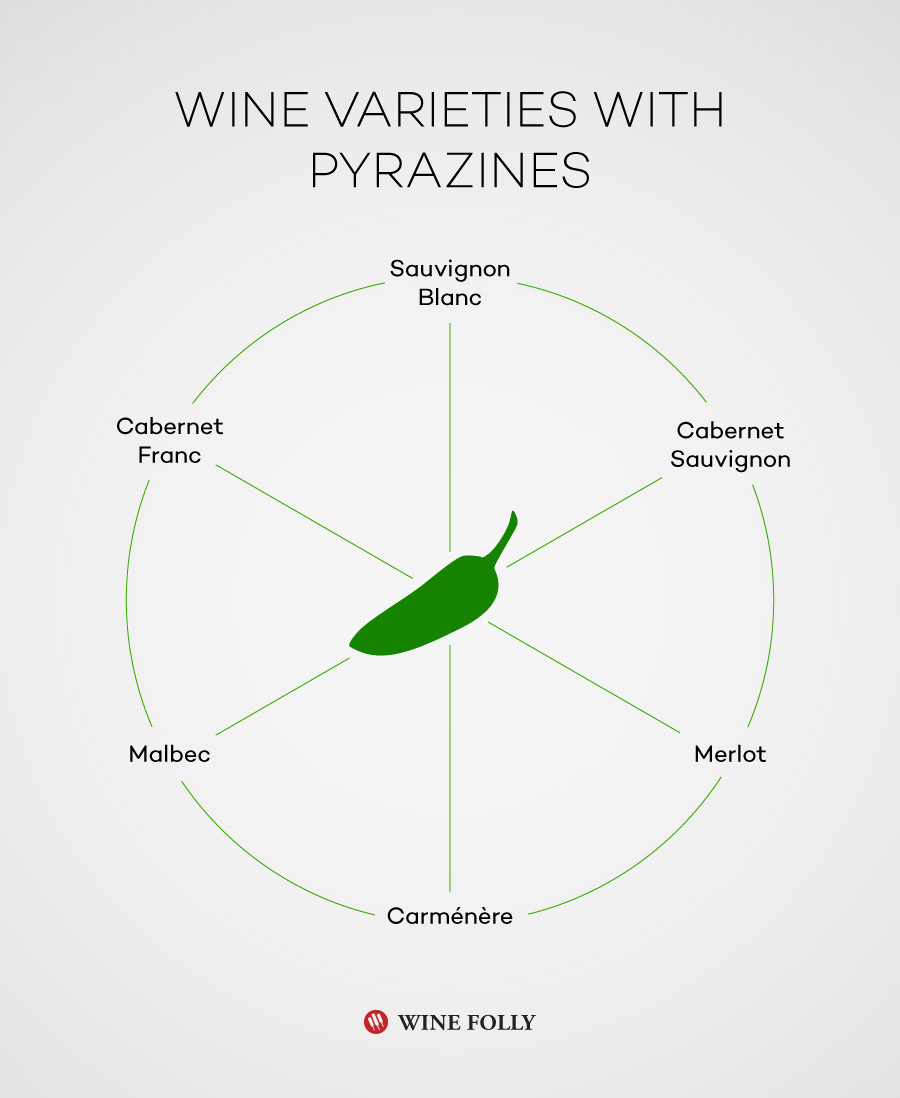
When sniffing Cabernet, you may note subtle smells of green peppercorn, graphite, dark chocolate, or even bell pepper.
For many years, the bell pepper compound was considered a negative “green” component in Bordeaux wines. As it happens, many consumers prefer their wines to taste fruity! So, viticulturists learned how to reduce “greenness” in wine with special pruning methods.
